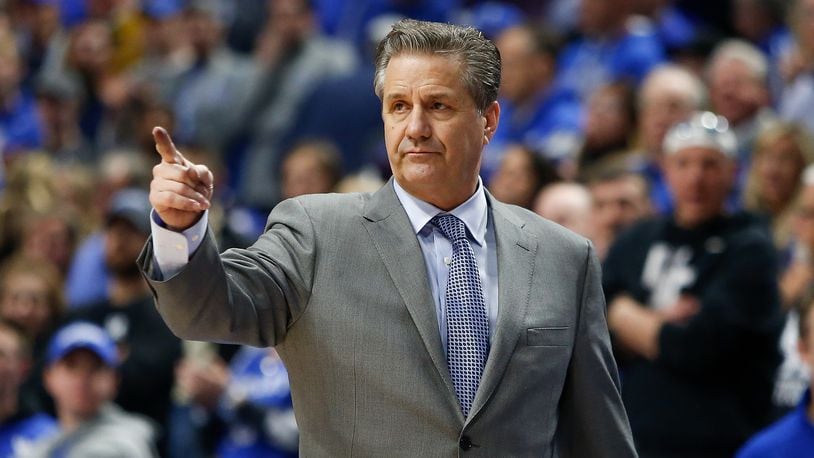Just ask John Calipari, who seemed pretty fired up about the whole thing during an appearance on the Dan Patrick Show this week.
"Whatever we do, Kentucky is eating first. I'd rather coach guys for four years, but I'm saying, what are we doing for these kids? Do we really trust the NBA to be all about these kids? Or are they going to be about the NBA? Maybe they can come up and give them all signing bonuses when they're coming out of high school and guarantee their education. You know what? I'm for that. Let's go. Sign me up."
The Kentucky coach said less than that is not enough.
Why? Because he doesn’t want to put at risk the educations numerous players who won’t make it in the NBA but don’t realize it yet are getting while they pursue that dream.
(He said Kentucky offers players the chance to continue their education for free throughout their lives and guessed other programs do as well. I know Ohio State has sponsored a degree completion program for at least a decade now for athletes from all of its sports.)
Therefore, he seemed to be against the NBA grooming high schoolers and potentially paying some a little more to play in its developmental “G League” instead of going to college because most would probably not end up better off if they chose that route.
More likely they would be worse unless the hit rate was a lot higher than when so many players went straight to the pros prior to the league’s setting an age limit a decade ago.
"Why would we devalue education when that's the one hope to get people to the other side of the tracks? That's the hope, not the dream of (being an NBA player)."
He asked this question after acknowledging teenagers are inevitably going to focus on the NBA rather than education because teenagers generally have poor perspective on life.
We were all once dumb 14- and 15-year-olds with an inflated sense of ourselves, right?
But there’s a difference between a teenager who plans to turn pro at 18 and one who knows he or she has to be eligible for college in order to keep a professional career in their future plans.
That’s to say nothing of those who might grudgingly go to college then find out how to get the good out of their time there as reality hits from a basketball perspective.
It wasn’t really clear if Calipari wants to eliminate “one and dones” or not. I think he was more worried about what happens to everyone else anyway.
"I'm not here to say I want one and done. I'm here to tell you what's best for these kids. Going right out of high school for 15 — do we upset this whole system for 15, 12, seven kids, nine kids? Even if it's 20 kids? We have this thing when you start talking these graduation rates and things that are happening with high schools preparing these kids for college better than they ever have because they have to be eligible to play in college..."
To further his point, Calipari cited his experience coaching players in the Dominican Republic, where baseball is beloved and youngsters often see that as a ticket to a better life.
But unlike baseball players who go pro as teenagers then spend years toiling in obscurity in the minors (a far cry from the glitz and glamour of college basketball or football), potential pro basketball players have to be able to get into college in the United States.
As it turns out, that has a positive side effect. While most great high school prospects don’t make it to the NBA, the ones who got college degrees return to their homes and become leaders in their communities.
This also applies to the United States, where no one ever points out free college is a much better deal than getting paid little to play in the minor leagues for a while before finding out you aren’t cut out for The Show.
Of course, there are problems in the current system that need to be worked out.
Calipari joined the chorus of those who are calling for players to be able to profit off their likenesses while they are in school.
RELATED: What should the NCAA do about its transfer rules?
He also suggested the NBAPA get involved helping prospects with financial needs by supplying them with loans.
Those sound like good ideas to me, and I suspect something like this will happen.
More encouraging is hearing someone with an influential voice — and someone who has benefited greatly from the status quo — explain the value of the current system for the overwhelming majority of players rather than calling for the whole thing to be blown up to better serve a few.
About the Author
